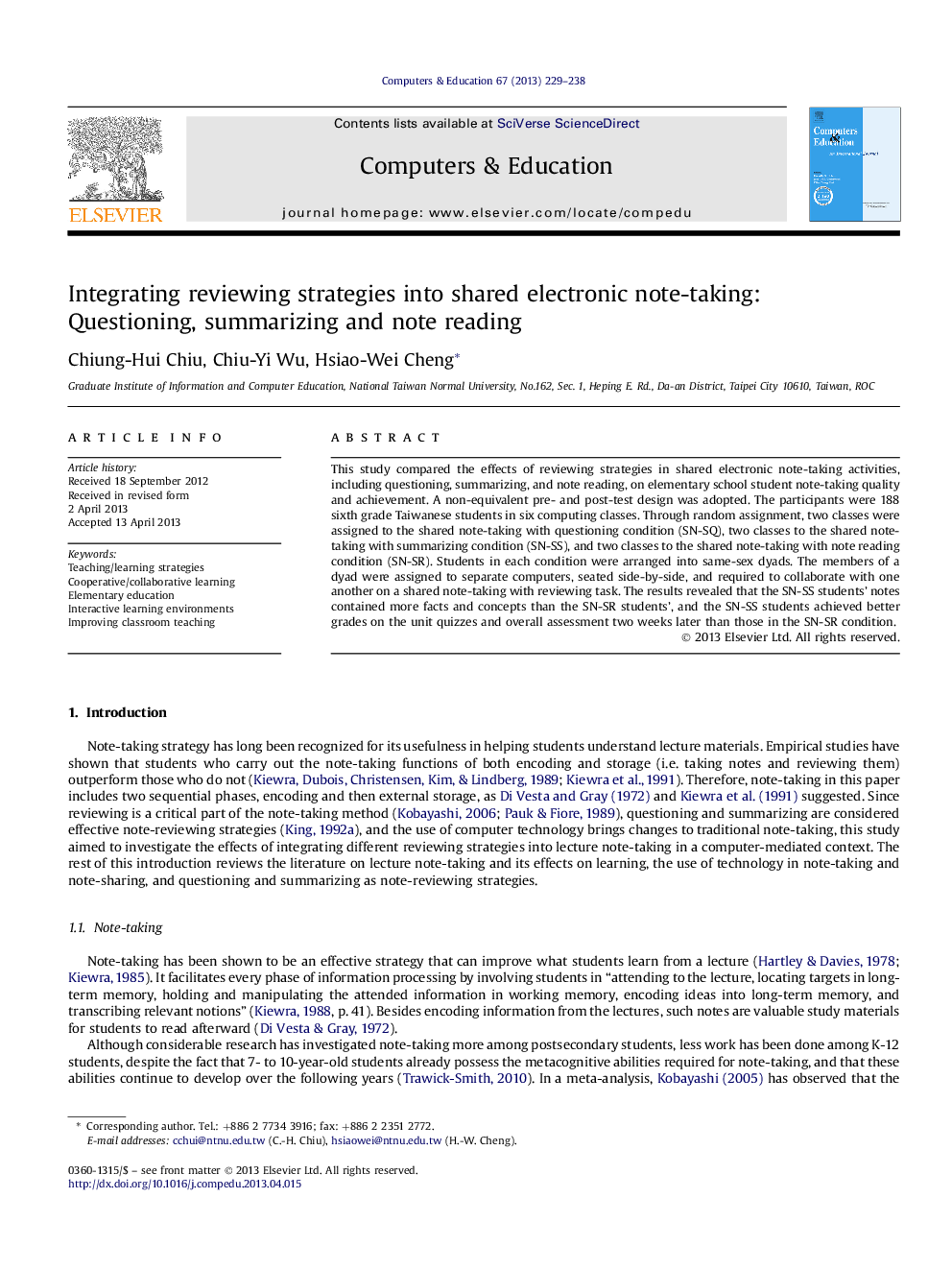| Article ID | Journal | Published Year | Pages | File Type |
|---|---|---|---|---|
| 6835560 | Computers & Education | 2013 | 10 Pages |
Abstract
This study compared the effects of reviewing strategies in shared electronic note-taking activities, including questioning, summarizing, and note reading, on elementary school student note-taking quality and achievement. A non-equivalent pre- and post-test design was adopted. The participants were 188 sixth grade Taiwanese students in six computing classes. Through random assignment, two classes were assigned to the shared note-taking with questioning condition (SN-SQ), two classes to the shared note-taking with summarizing condition (SN-SS), and two classes to the shared note-taking with note reading condition (SN-SR). Students in each condition were arranged into same-sex dyads. The members of a dyad were assigned to separate computers, seated side-by-side, and required to collaborate with one another on a shared note-taking with reviewing task. The results revealed that the SN-SS students' notes contained more facts and concepts than the SN-SR students', and the SN-SS students achieved better grades on the unit quizzes and overall assessment two weeks later than those in the SN-SR condition.
Keywords
Related Topics
Social Sciences and Humanities
Social Sciences
Education
Authors
Chiung-Hui Chiu, Chiu-Yi Wu, Hsiao-Wei Cheng,
